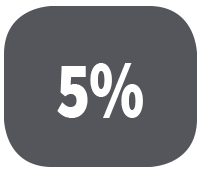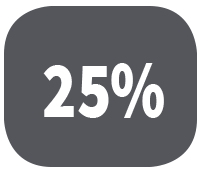Overview
StellaJUSTICE (Stella) by HarrisLogic, LLC (HL) leverages technology and clinical and behavioral health best practices to disrupt the recidivism cycle of non-violent/non-aggravated offenders. Stella integrates multiple diverse data sets from healthcare, behavioral health, and criminal justice providers to enable rapid detection, event notification, decision support, and continuity of care for behavioral health jail diversion programs.
How It Works
HL’s StellaJUSTICE solution is powered by its proprietary Connect platform. HarrisLogic built the Connect platform to streamline coordination of care and reduce inefficiencies within healthcare by connecting multiple providers into a single client management solution. The platform enables clinicians to rapidly identify clients within the network and view a wide spectrum of data including historical services, pharmacy, previous criminal justice system encounters, current charges and location within the jail. Decision-makers and care-givers are empowered with an interface to securely receive referrals, document actions taken, and streamline handoffs to other entities in the chain of care.
- Ingests real-time jail book-ins from the county jail and data from the local mental health authority
- Automates event notification and creation of comprehensive client profiles
- Enables multiple entities to operate in the continuity of care workflow
- Powers dashboards and reporting to evaluate the progress of individuals, jail populations, and participating agencies
- Provides a secure, private, and compliant digital framework
- Facilitates improved connection to community-based care, thereby reducing unnecessary incarceration, jail recidivism, higher levels of care admissions and unnecessary re-admissions
The impact of Stella is clear: improved health, reduced costs, improved outcomes, and enhanced experience for the patient population.
Case Study: Dallas Metro
In 2014, Dallas was similar to many cities that struggle with identification, assessment, and treatment of individuals with behavioral health conditions when they encounter the criminal justice system. In this setting, common practical problems of coordinating information on clients include institutionalized resistance to data sharing, lack of multi-agency coordination and collaboration, and inefficient operations.
Case Example
Tom is living on the streets of Dallas inadequately treated for multiple cooccurring mental health and medical conditions. He often moves from shelter to shelter with erratic healthcare and has had frequent police interactions that have led to incarceration. His jail time can be three times as long as that of people without behavioral health issues. This period in jail increases his chances of returning to jail in the next 6 months up to 67%. Once he is released, he leaves with only enough medication to make it a few days to a week. He might go to a follow-up appointment, but often falls off the radar of his local healthcare authority and returns to the streets. Without follow up care, Tom may require an emergency department visit for a psychotic episode, or even return to jail.
One weekend, Tom is arrested for aggravated assault. The officers immediately check Stella to find out his mental health status, and his criminal justice history across Dallas County. Similarly, once he is brought to jail, a mental health clinician reviews Tom’s history within Stella to see the whole picture. Once obtaining permission from Tom or Tom’s lawyer, the clinician discovers that Tom has not been to the pharmacy in over a month and contacts his healthcare provider to learn that Tom has been missing appointments. After Tom’s circumstances are better understood, a jail-based psychiatrist sees him. His mental health status is assessed and updated in Stella. As a result, the defense attorney who is assigned to him, and the judge who will oversee his court appearance, are aware of Tom’s condition. His sentencing accounts for these issues, and it is decided that Tom get outpatient care in lieu of additional jail time. Once Tom is back in the community, the local behavioral health authority has already been notified and can coordinate the services he needs to thrive.
Key Features and Benefits
- Instant notification of jail book-ins reduces detection and response time to persons with behavioral health problems
- Integration of multiple data sources enables the creation of holistic views of consumers that improves point of service decision-making.
- Improved operational efficiency with flexible workflow interface organized around the sequential intercept and case processing models enables coordination of care across organizations that previously operated in silos.
- Real-time dashboards enhance program management and system transformation efforts
- Advanced data analytics and predictive modeling enables detection of existing and emerging high utilizers and recidivists
- Secure, easy-to-use cloud based system built for stability, redundancy and scalability
- Robust toolkits and dashboards for reporting and quality supervision
- Designed for regulatory compliance with HIPAA, 42 CFR Part 2, CJIS, and HIV privacy rights






